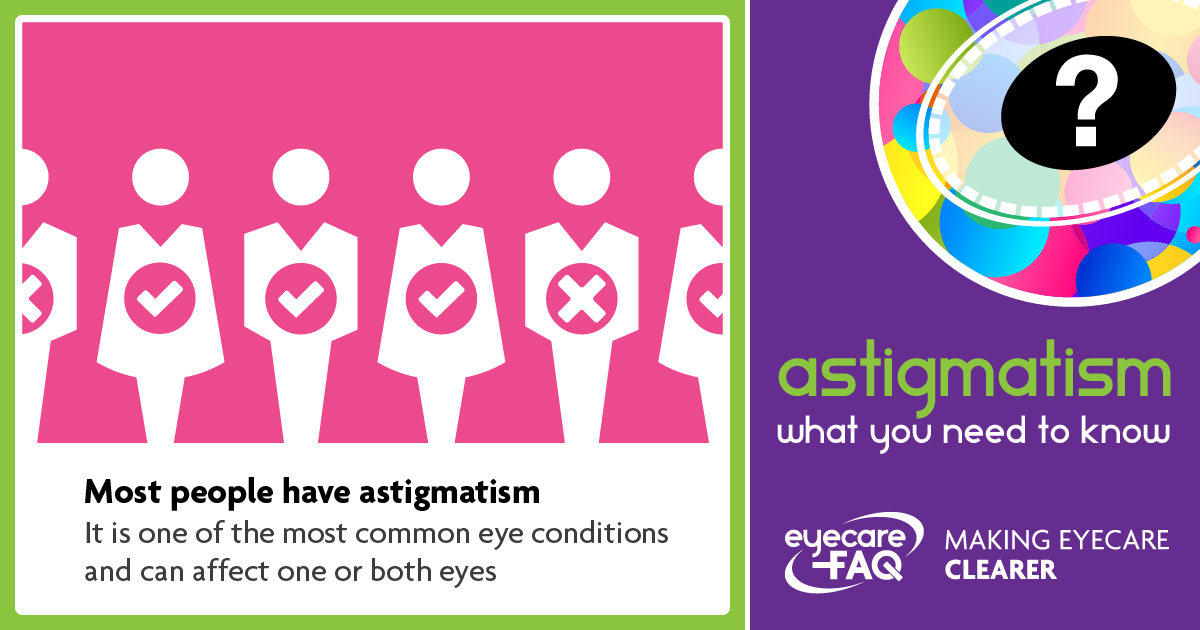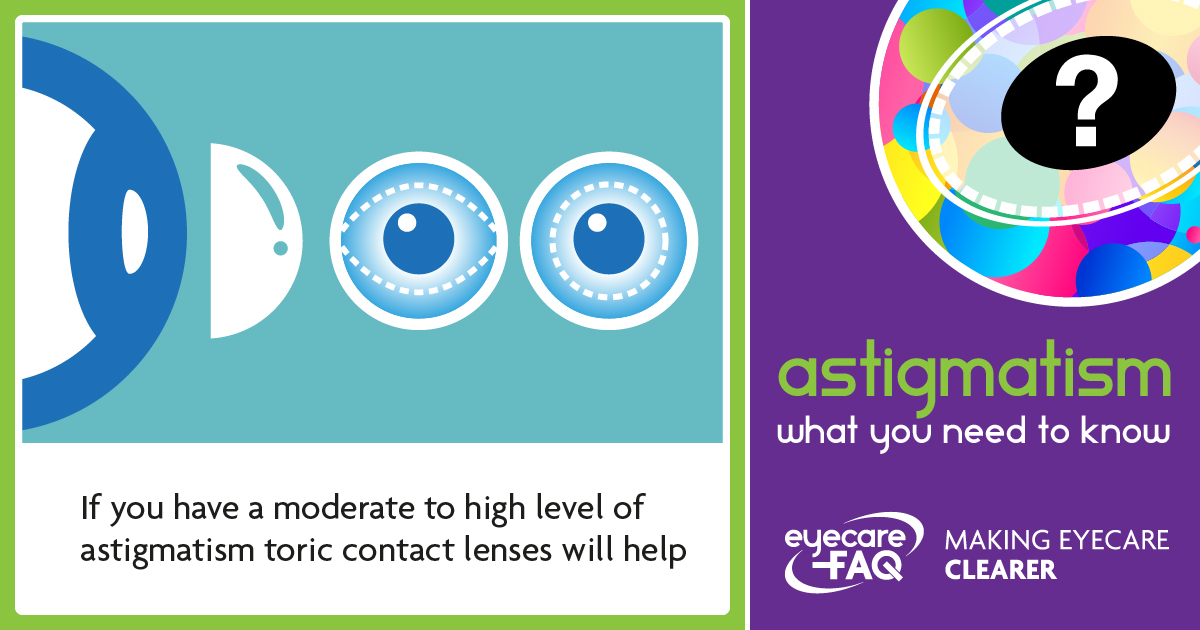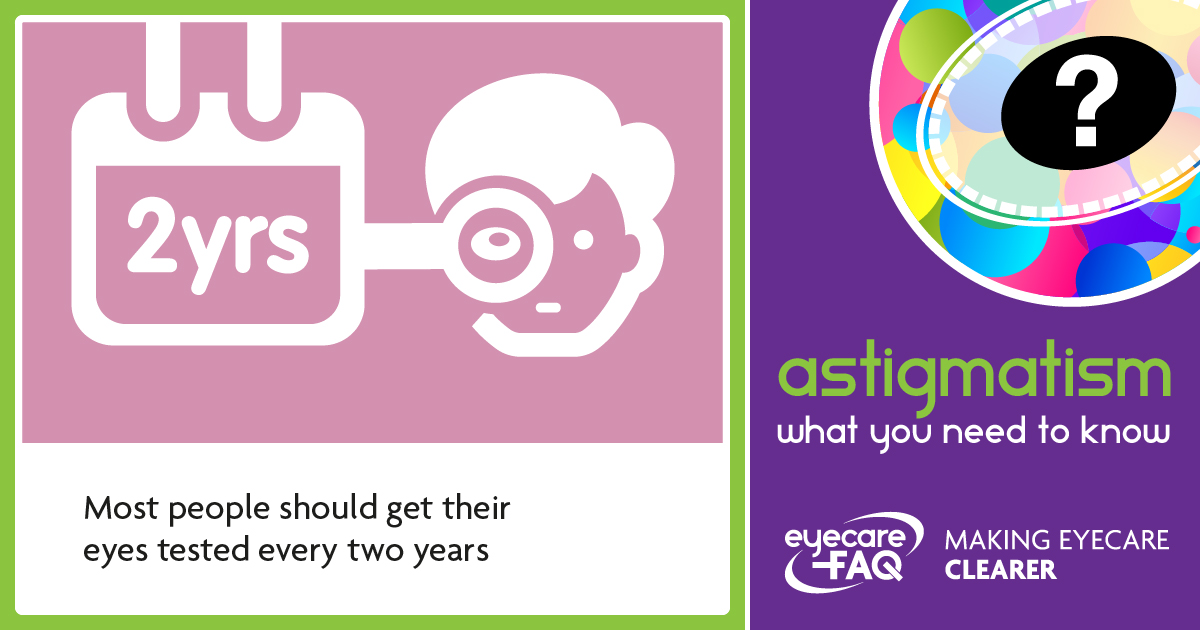What is Astigmatism?
Astigmatism is very common and generally nothing to worry about. It describes when the eye is rugby ball shaped rather than round. The majority of people have a small degree of astigmatism which causes no problems. If you wear glasses, you can be long or short sighted and also have astigmatism. The astigmatism will be taken into account in your spectacle prescription. A higher degree of astigmatism can cause blurred vision and you will need to wear glasses to correct it. It can occur in one or both eyes.
How many types of astigmatism are there?
There are two types of astigmatism.
- Regular astigmatism is when the cornea is curved more in one direction than the other so the front surface of the eye is shaped like a rugby ball. It is the most common form of astigmatism and can be corrected easily with glasses or toric contact lenses.
- Irregular astigmatism is far less common and happens when the curvature of the cornea isn’t even. It may be the result of an eye injury and related damage to the cornea, or a condition such as keratoconus. It can’t always be corrected with glasses, but it may be possible to correct with specialist contact lenses.
How is astigmatism detected?
Astigmatism is detected during a routine eye test. Optometrists recommend that most people should get their eyes tested every two years.
What are the symptoms of astigmatism?
Astigmatism can cause:
- blurred vision
- headaches
- eye strain
If you have any of these symptom make an appointment to see your optician.
When does astigmatism start?
Astigmatism often occurs early in life, but it may develop later in life.
In young children, a high astigmatism may cause lazy eye. It’s important this is spotted early so it can be treated.
How is astigmatism corrected?
Regular astigmatism is easily corrected with glasses or contact lenses for most people. If you have a moderate to high level of astigmatism toric contact lenses will help.
I have astigmatism can I wear contact lenses?
In the past if you had a high degree of astigmatism this may have limited the types of contact lenses available to you, but now soft toric lenses are available in a wider range of options. Rigid lenses in gas permeable materials are another good solution, either as small corneal lenses or mini scleral lenses which can help people with severe or irregular astigmatism. Ask your contact lens optician if you would like to try toric lenses.




